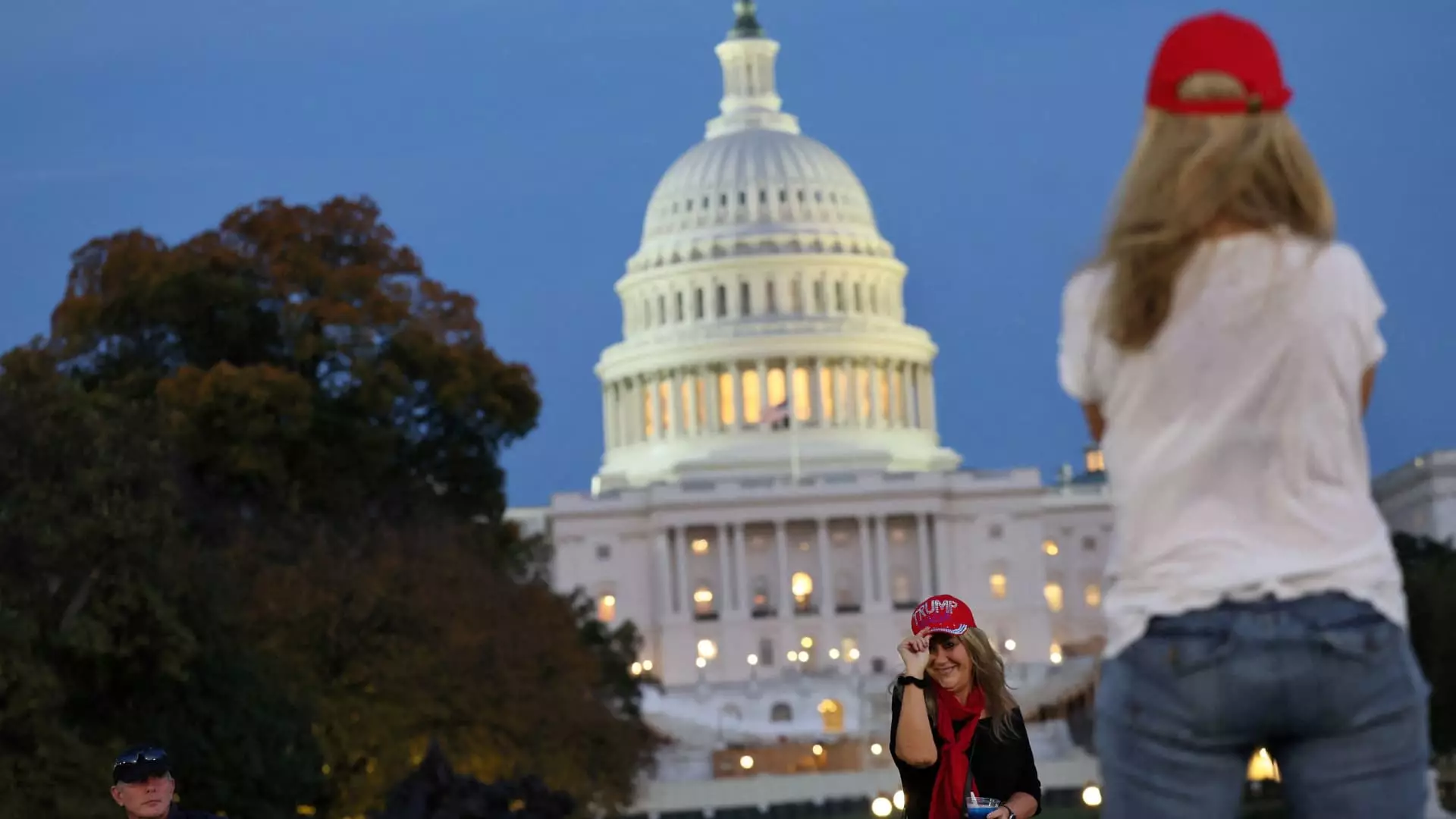The results of the recent presidential election have reverberated through financial markets, prompting individual investors to reassess their strategies in light of Donald Trump’s ascendancy to the presidency. Following the announcement of Trump’s victory, stock markets surged, with the Dow Jones Industrial Average notably breaking past the 44,000 mark for the first time, signaling investor optimism. However, financial advisors urge caution, stressing the importance of adhering to established financial plans and strategies rather than making impulsive decisions based on initial market reactions.
The abrupt increase in market activity in the wake of Trump’s election has fostered a sense of optimism among investors, leading many to speculate about potential changes in economic policy. Nevertheless, many financial experts, including certified financial planner Jude Boudreaux, recommend that investors maintain a long-term perspective. “Clients should stick with a financial plan that aligns with their goals,” he emphasizes, advising against major overhauls. A focus on long-term strategy is crucial, especially when the specifics of Trump’s policies remain unclear. This sentiment is echoed by Lee Baker, another certified financial planner, who highlights that while structural adjustments may be necessary, it is premature to enact sweeping changes based solely on political developments.
While Trump’s victory is met with positive market sentiment, the underlying dynamics reflect a deeper ambivalence. Markets typically abhor uncertainty, and the rally observed post-election might be more about relief at a clear outcome than an outright endorsement of Trump’s policies. Stacy Francis, a financial expert, points out that many investors anticipate a climate of accelerated economic growth under Trump’s leadership, potentially instigating more favorable market conditions. Yet, the reality of such expectations will depend largely on the actualization of proposed policies.
While political climates can influence market behavior, individual investors are urged to focus on their unique financial circumstances. Marguerita Cheng, CEO of Blue Ocean Global Wealth, asserts that factors such as personal goals, risk tolerance, and investment horizons should dictate asset allocation. Accordingly, the results of the election should not necessitate drastic alterations in one’s investment strategy. Cheng notes that sectors expected to benefit from Trump’s pro-business policies, particularly energy, finance, and industrial stocks, could be accessed through diversified index funds to mitigate risks effectively.
Moreover, the broader historical context indicates that markets have historically performed well across different political administrations. As Francis highlights, the performance of the stock market is not solely contingent on the political party in control but rather on wider economic conditions and investor sentiment.
The Tax Cuts and Jobs Act of 2017 introduced significant tax reforms that have implications for the future, particularly with expiration deadlines looming at the end of 2025. With Trump’s reelection, there is potential for tax policies to be extended, providing both individuals and corporations with anticipated tax cuts. This prospect has fueled enthusiasm in the stock market, as investors anticipate that such cuts could spur economic growth in subsequent years.
Particularly noteworthy are some of the proposed tax changes floated by Trump during his campaign, including the elimination of taxes on Social Security benefits and overtime pay. While these proposals are appealing, experts warn about the uncertainty surrounding their implementation. David Haas, another certified financial planner, argues that without specific legislative action, relying on these changes is ill-advised.
Another significant consideration for investors is inflation, which can be influenced by the policies enacted by a sitting president. While the Federal Reserve has made strides to keep inflation in check, proposals for tariffs and other pro-business measures could generate inflationary pressures by increasing the cost of imported goods. Francis notes that should tax cuts translate into greater disposable income, the resultant increase in demand could further elevate inflation.
Recent actions by the Federal Reserve, including a 25 basis point interest rate cut, illustrate the delicate balance of managing inflation against economic growth. As Trump’s policies manifest, they may direct the Fed’s approach in future interest rate adjustments, including in 2025.
In the current financial climate, the surges in market performance after Trump’s election reflect a complex interplay of hope and apprehension. Individual investors are advised to remain steadfast, focusing on their respective financial plans and not on potentially volatile market reactions. The full implications of Trump’s economic policies will unfold over time, and a patient approach, guided by personal financial objectives, is crucial for navigating this uncertain landscape. As the financial world watches and waits, the call for a balanced, informed response to market fluctuations has never been more pressing.

